Holidays in a historic winery
- 5 double rooms, 2 suites Rooms
- 38 - 72 qm Size
- 14 adults, 5 children Maximum number of guests
Historical place of energy at Wagram
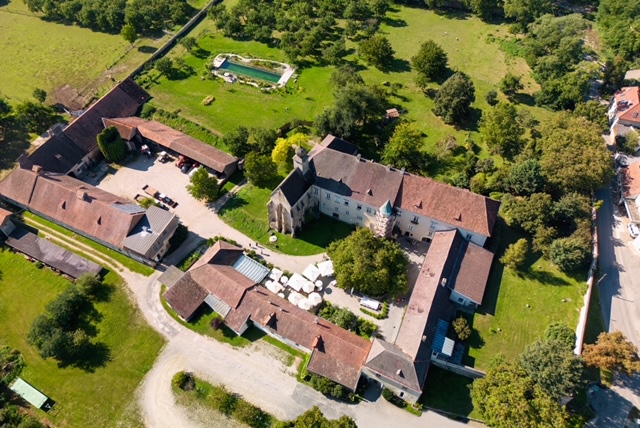 The Oberstockstall estate is embedded in the gentle hills of the Wagram, surrounded by idyllic vineyards and picturesque fields. Diversity is lived here: wine, agriculture, animals, guest rooms and restaurant are in close relationship and a dynamic cycle with each other.
This place tells of centuries of history of the farm and its facilities. From its medieval beginnings, the estate has undergone constant change and, at the same time, almost astonishing continuity: in addition to the Gothic chapel, the deliberate simplicity of the Renaissance and the noble elements of the Baroque merge almost imperceptibly. Seven spacious guest rooms invite you to linger.
You are welcome to taste our natural and Demeter-certified wines in a guided tasting session.
The Oberstockstall estate is embedded in the gentle hills of the Wagram, surrounded by idyllic vineyards and picturesque fields. Diversity is lived here: wine, agriculture, animals, guest rooms and restaurant are in close relationship and a dynamic cycle with each other.
This place tells of centuries of history of the farm and its facilities. From its medieval beginnings, the estate has undergone constant change and, at the same time, almost astonishing continuity: in addition to the Gothic chapel, the deliberate simplicity of the Renaissance and the noble elements of the Baroque merge almost imperceptibly. Seven spacious guest rooms invite you to linger.
You are welcome to taste our natural and Demeter-certified wines in a guided tasting session.
Arrival from 2pm
Departure til 11am
From 6 - 4 weeks before the start of the holiday: 20% cancellation fee, from 4 weeks - 8 days before the start of the holiday: 50% cancellation fee, from 8 days before the start of the holiday: 100% cancellation fee.
Distances| Means of transport / Destination | Location | Distance |
|---|---|---|
Double room with king-size bed
- spacious, light room, extra-large, metal-free double bed with two particularly thick and comfortable natural mattresses - natural bed linen from Grüne Erde - baroque furniture combined with modern simplicity - TV - large open bathroom with rain shower, separate toilet, bidet, natural cosmetic products, hairdryer.Double room with double bathtub
- spacious, light room, extra-large, metal-free double bed with two particularly thick and comfortable natural mattresses, natural bed linen from Grüne Erde, baroque furniture combined with modern simplicity, TV, large open bathroom with a double bathtub, separate toilet, bidet, natural cosmetic products, hairdryer.Suite Patron & Suite Patronin
- spacious, light room, extra-large, metal-free double bed with two particularly thick and comfortable natural mattresses - natural bed linen from Grüne Erde - baroque furniture combined with modern simplicity - TV - large open bathroom with rain shower, separate toilet, bidet, natural cosmetic products, hairdryer.The room/apartment/property is equipped with
- Minibar
- TV, SAT
- Renovated/newly refurbished
- Terrace
Bedroom
- Room size over 20m2
- Double bed
- Linen
- Extra cushions and blankets
- Baby cot
- Baby cot
- Writing desk
- Room service daily
Bathroom
- Shower
- Bathtub
- WC
- Towels
- Hairdryer
- Cosmetic products
- Guest toilet
Culinary
- Restaurant
- Breakfast
- Food from our own organic farm
- Local products
Garden
- Sunbathing area
- Sunbed
- Pool
- Terrace
- Castle courtyard
- Park
- Outdoor dining area
- Pool-Badetücher
Children
- Children's high chair
Kitchen
- Coffee machine
Others
- not barrier-free
- Non Smoking
- attached farm
- Parking area
- e-Bikes
In the surrounding area
- Mountainbike/Cycling
- Hiking
- Culture
Payment
- Online payment/credit card
History
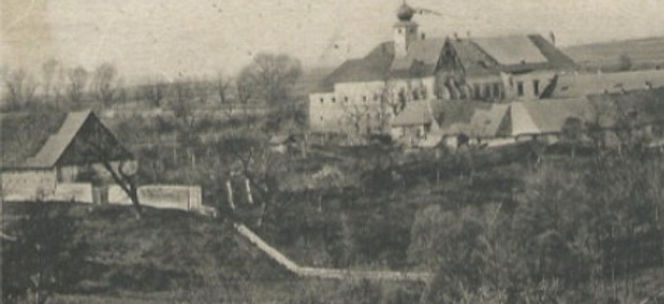
From the Early Metal Age to the pastor

Early period
During excavations on our estate, below the chapel's foundation wall, an early metal object (2,000 BC) was found. The full-tang sword that was recovered in one of our vineyards dates from the later Bronze Age (1,200–800 BC).
Traces of Celtic settlements have also been found in Kirchberg, which supports the assumption that the fountain at Gut Oberstockstall – fed by three springs – was an ancient spring shrine. The construction of the chapel around 1310 and the erection of the altar above the fountain were intended to Christianise it.
Church-owned property
In the Early Middle Ages (and well into the Babenberg period), the population of the Kirchberg am Wagram region was primarily of Slavic descent. With the expansion of ecclesiastical property, a Bavarian ‘colonisation’ began.
The first documented reference to Gut Oberstockstall also dates back to this period of church donations: Around 1135, Sigehardus von Stochestale transferred his property to the Passau diocesan chapter. The estate became the rectory of Kirchberg am Wagram and the seat of the Passau diocesan chapter's manorial system. It was further expanded. In 1310/20, the Gothic chapel was built. Its importance grew when the parish priests, the noble canons from Passau, resided here.
In the 14th century, the local parish priests also held the office of head cellarer of the Diocese of Passau. Canon Christoph von Trenbach had the present main building of the castle (residential wing) built in the Renaissance style in the 1540s. The Trenbach coat of arms with the date and inscription is preserved above the entrance to the staircase.
The alchemist's laboratory was also built during this time, but it was partially destroyed in 1590 during the Neulengbach earthquake. Until 1803, the estate belonged to the Passau Cathedral Chapter, then it was transferred to the Royal Treasury and finally, for a short period, it was owned by the National Bank. In 1869, Karl Salomon bought the Oberstockstall estate at an auction and it has been in the family ever since.
Alchemist's laboratory at Gut Oberstockstall
He was on a ‘treasure hunt’ and discovered by chance that some bricks in the floor of the former sacristy of the castle chapel had sunk: Fritz Salomon found the first traces of the ‘alchemical treasure’ at the age of ten at Gut Oberstockstall, where an important laboratory had been built during the Renaissance.
The excavations began in 1980 and ultimately more than a thousand objects were found, making this the most extensive collection of its kind. Based on current knowledge, it can be said that the facility at Gut Oberstockstall was a high-tech alchemist's laboratory. It was set up primarily to study metal alloys, coin metal and ore samples – apparently to optimise metallurgical processes.
The laboratory was built during the time of Christoph von Trenbach, an important pastor of Kirchberg (in office 1538-1552), who also remained in Oberstockstall as a provost. He was involved in alchemy until his mysterious death. His successor and brother Urban was also involved, as well as the later parish priests from the Fugger family. It is also surprising that no references can be found in historical sources, despite the size and importance of the laboratory. According to the dated artefacts, it can be assumed that there was a decades-long alchemical tradition that extends to the time of Emperor Rudolf II.
And so, to this day, the mystery remains shrouded in the veils of historiography as to why the inventory had been ‘disposed of’ to this extent. One assumption relates to the destruction caused by a natural disaster, namely the so-called Neulengbach earthquake (September 1590, magnitude 8 to 9 on the Mercalli-Sieberg scale). Perhaps the destruction of such a large number of ash domes and crucibles was also connected with the death of Viktor August Fugger?
In any case, the storage of the inventory does not necessarily mean that the laboratory was also given up.
Reference: ‘Das Alchemistenlaboratorium von Oberstockstall – ein Fundkomplex des 16. Jahrhunderts aus Niederösterreich“, Dr Sigrid von Osten
During excavations on our estate, below the chapel's foundation wall, an early metal object (2,000 BC) was found. The full-tang sword that was recovered in one of our vineyards dates from the later Bronze Age (1,200–800 BC).
Traces of Celtic settlements have also been found in Kirchberg, which supports the assumption that the fountain at Gut Oberstockstall – fed by three springs – was an ancient spring shrine. The construction of the chapel around 1310 and the erection of the altar above the fountain were intended to Christianise it.
Church-owned property
In the Early Middle Ages (and well into the Babenberg period), the population of the Kirchberg am Wagram region was primarily of Slavic descent. With the expansion of ecclesiastical property, a Bavarian ‘colonisation’ began.
The first documented reference to Gut Oberstockstall also dates back to this period of church donations: Around 1135, Sigehardus von Stochestale transferred his property to the Passau diocesan chapter. The estate became the rectory of Kirchberg am Wagram and the seat of the Passau diocesan chapter's manorial system. It was further expanded. In 1310/20, the Gothic chapel was built. Its importance grew when the parish priests, the noble canons from Passau, resided here.
In the 14th century, the local parish priests also held the office of head cellarer of the Diocese of Passau. Canon Christoph von Trenbach had the present main building of the castle (residential wing) built in the Renaissance style in the 1540s. The Trenbach coat of arms with the date and inscription is preserved above the entrance to the staircase.
The alchemist's laboratory was also built during this time, but it was partially destroyed in 1590 during the Neulengbach earthquake. Until 1803, the estate belonged to the Passau Cathedral Chapter, then it was transferred to the Royal Treasury and finally, for a short period, it was owned by the National Bank. In 1869, Karl Salomon bought the Oberstockstall estate at an auction and it has been in the family ever since.
Alchemist's laboratory at Gut Oberstockstall
He was on a ‘treasure hunt’ and discovered by chance that some bricks in the floor of the former sacristy of the castle chapel had sunk: Fritz Salomon found the first traces of the ‘alchemical treasure’ at the age of ten at Gut Oberstockstall, where an important laboratory had been built during the Renaissance.
The excavations began in 1980 and ultimately more than a thousand objects were found, making this the most extensive collection of its kind. Based on current knowledge, it can be said that the facility at Gut Oberstockstall was a high-tech alchemist's laboratory. It was set up primarily to study metal alloys, coin metal and ore samples – apparently to optimise metallurgical processes.
The laboratory was built during the time of Christoph von Trenbach, an important pastor of Kirchberg (in office 1538-1552), who also remained in Oberstockstall as a provost. He was involved in alchemy until his mysterious death. His successor and brother Urban was also involved, as well as the later parish priests from the Fugger family. It is also surprising that no references can be found in historical sources, despite the size and importance of the laboratory. According to the dated artefacts, it can be assumed that there was a decades-long alchemical tradition that extends to the time of Emperor Rudolf II.
And so, to this day, the mystery remains shrouded in the veils of historiography as to why the inventory had been ‘disposed of’ to this extent. One assumption relates to the destruction caused by a natural disaster, namely the so-called Neulengbach earthquake (September 1590, magnitude 8 to 9 on the Mercalli-Sieberg scale). Perhaps the destruction of such a large number of ash domes and crucibles was also connected with the death of Viktor August Fugger?
In any case, the storage of the inventory does not necessarily mean that the laboratory was also given up.
Reference: ‘Das Alchemistenlaboratorium von Oberstockstall – ein Fundkomplex des 16. Jahrhunderts aus Niederösterreich“, Dr Sigrid von Osten
Gallery
Location
Oberstockstall Manor
3470 Oberstockstall, Ringstraße 1
Reviews
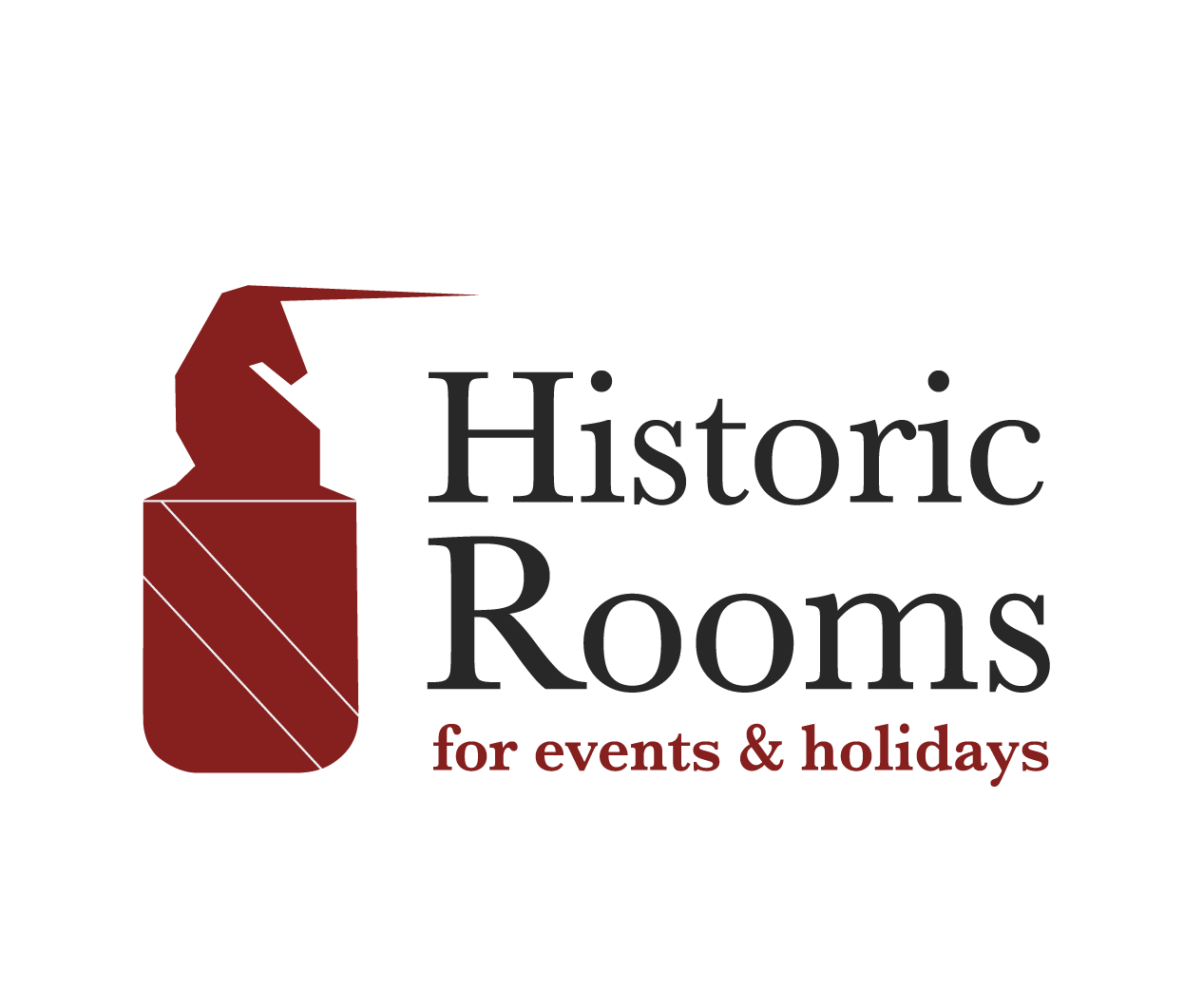
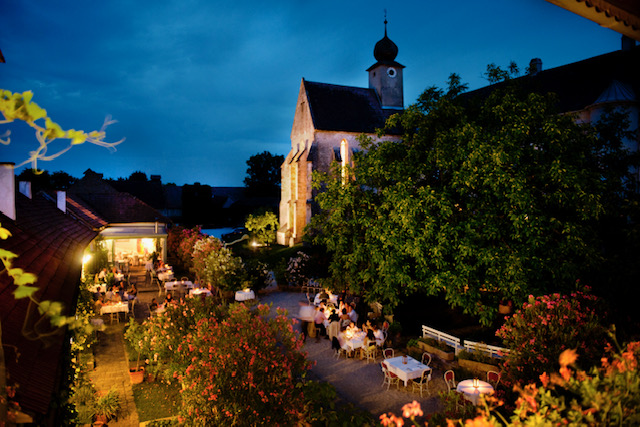
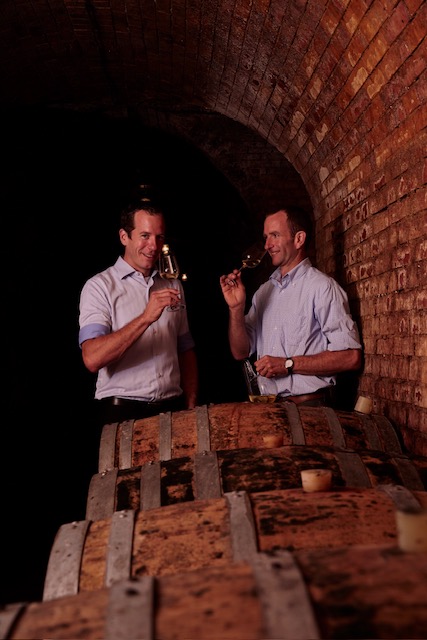
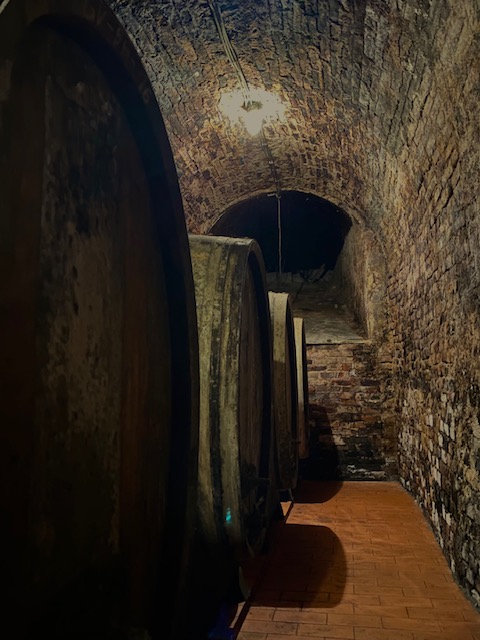
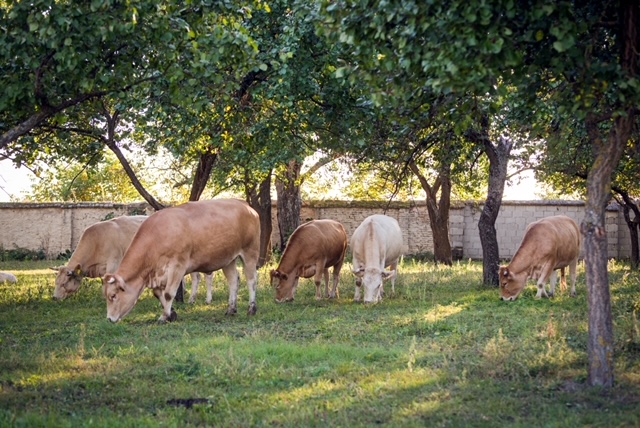 >
>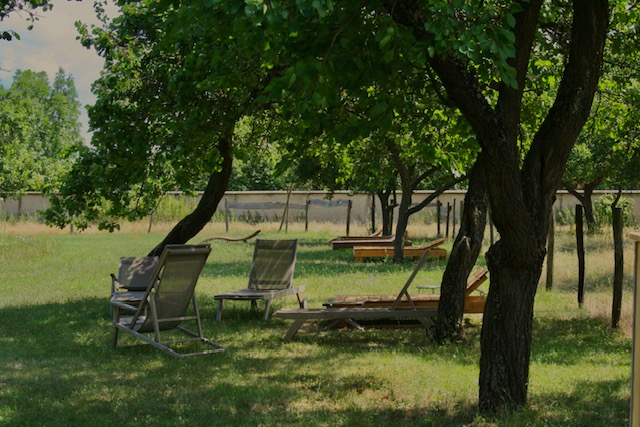
Schreibe einen Kommentar